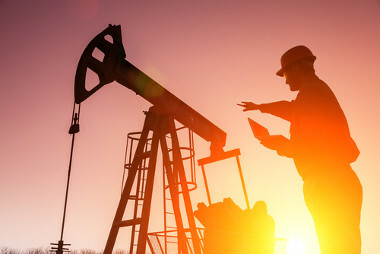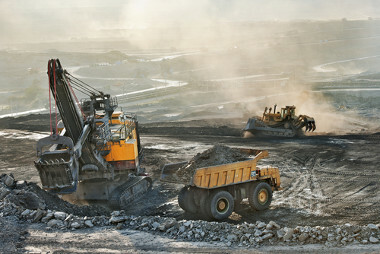Fossil fuels play a very important role in society as we know it today. represent more than 75% of the world's energy demand, being used in vehicles, industries and residences.
But after all, what is a fossil fuel? O term “fossil” means is given to the remains or remains of plants or animals that are found in the earth layers prior to the current geological period. Fossil fuels originated precisely through the slow decomposition of animal and plant living beings over thousands or millions of years. These remnants of organic matter were being buried in the deepest layers of the earth's crust, preserving oxygen, and decomposition occurred due to being subjected to the action of bacteria, pressure and heat.
The combustion or burning of all fossil fuels generates polluting gases, such as carbon dioxide (CO2), which is considered by many to be the main cause of global warming; carbon monoxide (CO), which is toxic and poisonous; particulate matter, such as soot (C), and other gases arising from the presence of impurities, such as sulfur and nitrogen oxides that cause acid rain.
Another downside of fossil fuels is that theyare not renewable, that is, one day your reservations will end.
We have three types of fossil fuels, which are:
1- Petroleum: it was mainly formed by the remains of small marine beings, such as unicellular animals and plants. Its deposits are estimated to be between 10 and 500 million years old.

Use of "stick horse" (left) for oil exploration
Petroleum is a dark liquid composed of a complex mixture of hydrocarbons, plus small amounts of organic compounds that contain sulfur, nitrogen and oxygen.
It is currently the most used fossil fuel because its refinement through fractional distillation it originates several fractions or mixtures of organic compounds with close amounts of carbon that compose petroleum derivatives. These can be used in a variety of ways.
Do not stop now... There's more after the advertising ;)
As examples of the application of petroleum derivatives, we can mention gasoline, natural gas and diesel oil, which are used as fuel; The kerosene, which can be used in lighting; O LPG (Liquefied Petroleum Gas) used in cooking gas; paraffin, which is used in the manufacture of candles and cosmetics; the asphalt used to pave streets; in addition to the many petroleum derivatives used in the production of synthetic polymers (plastics and rubbers).
2- Natural gas: it is mainly composed of methane and can be found in petroleum deposits associated with petroleum. It is used as fuel, raw material in the synthesis of organic compounds and in the manufacture of plastics. The government has also encouraged the use of natural gas in industries to generate heat, given that it is less polluting than oil derivatives.
The main limitation in the use of combustible natural gas is related to its transport and storage, which currently require huge pipelines that can cause a great environmental impact.

Gas pipelines for transporting natural gas can impact the environment
3- Mineral or natural coal: This fuel was obtained by fossilizing wood and is made up of a mixture of complex substances rich in carbon.
There are four types of mineral coals, but the one with the greatest commercial importance is the coal (with 80% carbon). When it undergoes dry distillation, coal originates three fractions that contain compounds used for the most diverse purposes. These fractions are: gases used as fuel and in street lighting; coal tar, which is the main natural source of aromatic compounds used in the production of plastics, paints, cleaning products and medicines; and the ammoniacal waters that are used in fertilizers.

Coal mine
By Jennifer Fogaça
Graduated in Chemistry
Would you like to reference this text in a school or academic work? Look:
FOGAÇA, Jennifer Rocha Vargas. "Fossil fuels"; Brazil School. Available in: https://brasilescola.uol.com.br/quimica/combustiveis-fosseis.htm. Accessed on June 27, 2021.


